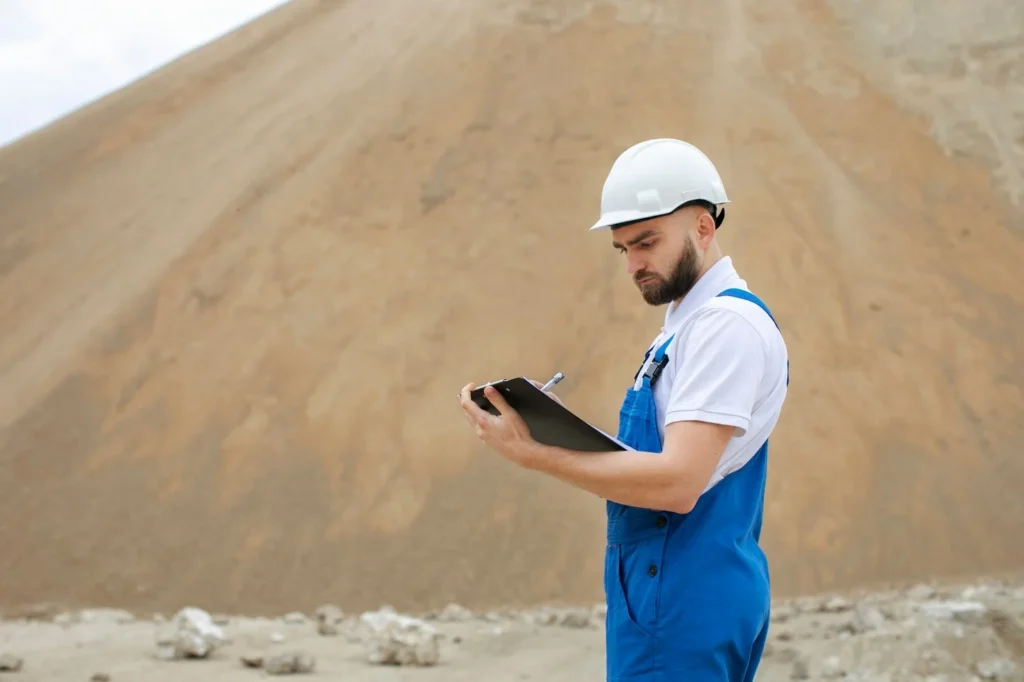Compaction testing is a crucial aspect of construction and engineering projects, ensuring the stability and durability of the soil and the overall site. Whether you’re working on a large-scale infrastructure project or preparing the ground for residential construction, compaction testing provides the data needed to build on a solid foundation.
This guide explores everything you need to know about compaction testing—what it is, why it matters, and how it’s done. By the end of this article, you’ll have a complete understanding of the process and its significance in ensuring the success of your construction projects.
What is Compaction Testing?
Compaction testing evaluates how well soil has been compacted, measuring its density and ability to support structural loads. Compacted soil improves strength, minimizes settling, and ensures a stable ground for construction. It plays a significant role in preventing structural defects that might emerge due to poorly compacted soil.
By determining the density and moisture content of the soil, compaction testing ensures the ground meets the design specifications required for safe and long-lasting construction.
Key Metrics in Compaction Testing:
- Density: Measures the soil’s mass per unit volume.
- Moisture Content: Determines how much water is present in the soil.
- Degree of Compaction: Compares actual soil density to maximum achievable density.
Why is Compaction Testing Important?
Compaction testing is essential for maintaining the integrity and safety of construction projects. Poorly compacted soil can lead to issues such as:
- Foundation Failure: Insufficient compaction can cause uneven settling, leading to cracks and instability in buildings.
- Water Damage: Loose soil allows water to seep in, causing erosion and weakening structures.
- Reduced Load-Bearing Capacity: The ground may not support heavy loads, compromising the durability of roads, bridges, and other infrastructure.
Key Benefits of Compaction Testing:
- Enhanced Stability: Ensures structures are built on soil that won’t shift or settle over time.
- Longevity of Construction Materials: Helps prevent unnecessary wear and tear, extending the lifespan of the project.
- Cost Savings: Identifies issues early, reducing the risk of costly repairs later.
How is Compaction Testing Performed?
There are several methods for conducting compaction tests, each with its own advantages. The choice of method often depends on the project’s scope, soil type, and specific requirements.
Common Compaction Testing Methods:
- Proctor Test (Standard or Modified)
This laboratory test determines the soil’s maximum dry density (MDD) and optimal moisture content (OMC). The soil sample is compacted in a mold under controlled conditions, simulating field conditions.
- Best for determining accurate compaction standards before fieldwork begins.
- Nuclear Density Gauge Test
This field test uses radiation to measure soil density and moisture content.
- Non-destructive and provides quick, reliable results.
- Ideal for large projects requiring frequent testing.
- Sand Cone Test
This field method measures soil density by filling a small hole with sand and calculating the volume displaced by the soil.
- Traditional and reliable but time-consuming.
- Used for smaller sites where accuracy is crucial.
- Drive Cylinder Method
A metal cylinder is driven into the soil to obtain a sample, which is then analyzed for density and moisture.
- Simple and effective for specific conditions.
- Dynamic Cone Penetrometer (DCP) Test
A cone is driven into the soil to evaluate its relative strength and compaction level.
- Useful for quick assessments of soil layers.
What Does the Compaction Test Process Look Like?
The process of compaction testing involves several steps to ensure accurate and meaningful results.
Step 1: Site Preparation
- Identify the testing locations based on project requirements.
- Clear the area of debris and loose materials.
Step 2: Soil Sampling
- Collect a representative sample of the soil for analysis.
- Ensure samples are consistent with the site’s soil conditions.
Step 3: Testing
- Perform the selected compaction test (Proctor, Nuclear Gauge, etc.).
- Record data, including density, moisture content, and degree of compaction.
Step 4: Data Analysis
- Compare the test results with design specifications and standards.
- Identify areas that require additional compaction or adjustments.
Step 5: Reporting
- Generate a comprehensive report detailing the findings and recommendations.
- Share the results with project stakeholders to inform decisions.
Who Benefits from Compaction Testing?
Compaction testing isn’t just about meeting regulatory requirements; it’s a valuable tool for multiple stakeholders in the construction and engineering industries.
Key Beneficiaries:
- Contractors
- Ensure compliance with project specifications and avoid delays caused by ground instability.
- Engineers
- Gain confidence in soil parameters to design safe and efficient structures.
- Developers
- Protect investments by minimizing risks associated with poorly compacted soil.
- Homebuilders
- Provide homeowners with durable and reliable foundations.
The Role of Aardvark Geotechnical Engineering & Testing
When it comes to compaction testing, partnering with an experienced firm like Aardvark Geotechnical Engineering & Testing ensures accurate results and reliable insights. With expertise in soil evaluation, geotechnical engineering, and construction material testing, Aardvark is a trusted partner for projects across New England.
Why Choose Aardvark?
- Comprehensive Services
From soil testing to geotechnical engineering, Aardvark offers end-to-end support for construction projects.
- Expert Staff
Licensed engineers, geologists, and field technicians provide unparalleled expertise.
- Regional Coverage
Offices in MA, CT, NH, and more, serving projects in six states across New England.
- Proven Track Record
Over 282 completed projects demonstrate their commitment to excellence.
Final Thoughts on Compaction Testing
Compaction testing is more than just a regulatory step—it’s an essential part of building safe, stable, and long-lasting structures. Whether you’re a contractor, engineer, or developer, understanding and implementing compaction testing can save time, money, and effort.
If you’re ready to elevate your construction projects with accurate and professional compaction testing, consider partnering with experts like Aardvark Geotechnical Engineering & Testing. Their proven expertise and dedication to project success make them a trusted partner for all your soil and material testing needs.







